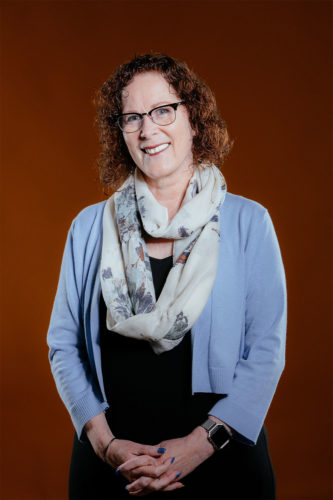
A call to your local representative’s office can do more than you might think.
When the COVID-19 pandemic hit in 2020, many Oregonians lost their jobs and filed claims for unemployment benefits. Oregon’s Employment Department had an unprecedented number of claims and was overwhelmed with the number of calls it was getting from constituents. Some people who had lost their jobs didn’t know how to claim unemployment benefits or access health aid services.
This meant that during that time, Oregon House Majority Leader Julie Fahey’s office was often occupied with connecting constituents with those services.
State and U.S. senators and representatives are well positioned to help connect their constituents with services. Fahey’s office has helped connect people with rental assistance, nursing licensure delays, DMV titling, even legal and non-governmental assistance.
Fahey tells Eugene Weekly that she was contacted by someone who was encountering bureaucratic hurdles with the Oregon Health Plan. He needed to change his address, and was not able to access a certain kind of provider until after it was changed.
Fahey herself called OHA to get that constituent’s address changed.
“I just ended up calling the right person at OHA and getting that address,” Fahey says. “That was very satisfying.”
Fahey’s office can help connect constituents with agencies, resources and legal aid, even if they are out of her jurisdiction.
State legislators have the unique position of being able to connect their constituents directly with the heads of state and federal agencies.
Oregon state Sen. James Manning Jr. says he goes straight to agency directors to address issues his constituents are facing.
When a constituent in Eugene applied to get his driver’s license, Manning says, “there was an issue in the database where another individual with his same name in a different state was under an investigation, and he was not able to get his license because of the laws that are out there.”
He adds, “I contacted the director of the DMV and explained what the issue was and they got it resolved instantly.”
Manning says he doesn’t wait around to go through bureaucratic channels of an agency to solve a problem. If a constituent is coming to him for help navigating a problem with an agency’s bureaucracy, it’s important for the leaders of those agencies to be notified that this could be a systemic problem with their agency.
Agency directors may not be aware of problems that exist within their systems, Manning says, so connecting them with constituents who are experiencing hold-ups puts him and the agency directors more in the loop.
U.S. Representative for Oregon’s 4th Congressional District Val Hoyle, who was the state’s labor commissioner for four years before being elected to Congress, is one of the few members of Congress who has led a government agency.
Hoyle says her congressional office is an advocate for people who run into problems with federal agencies, but she is also an advocate for lowering the knowledge barrier to understanding state and federal agency processes.
Hoyle says that during a Feb. 8 House Committee on Natural Resources meeting, she said she thought investment in better technology and front-end customer service staff for government agencies would make them more accessible to people who don’t have the time, energy or legal resources.
“That doesn’t mean lowering standards or privatizing the work,” Hoyle says. “It means investing in government, making sure it works well, supporting the workforce and making the IT systems better.”
On April 1, Oregon is going to start redetermining eligibility for Medicaid, after a long pause on assessing eligibility throughout the pandemic.
Fahey says she encourages her constituents to be proactive. If they are concerned about their eligibility status changing, or if they need help accessing health care resources if they know they will no longer be eligible for the Oregon Health Plan, they should contact her office for assistance.
OHA and other Oregon state and federal representative’s offices should be prepared for this uptick before it happens.
“As the majority leader, part of my job is helping other offices know that they need to be ready for this,” Fahey says.
You can find who represents you in the Oregon Legislature by going to OregonLegislature.gov. To contact Rep. Val Hoyle’s office go to Hoyle.House.gov or call 202-225-6416.